China is known as “the country of poetry”
poetry is not only in books
may also be hidden in
On the flashing stop sign outside the train window
Today, I will take you to unlock those
poetic train station names
1 Orchid
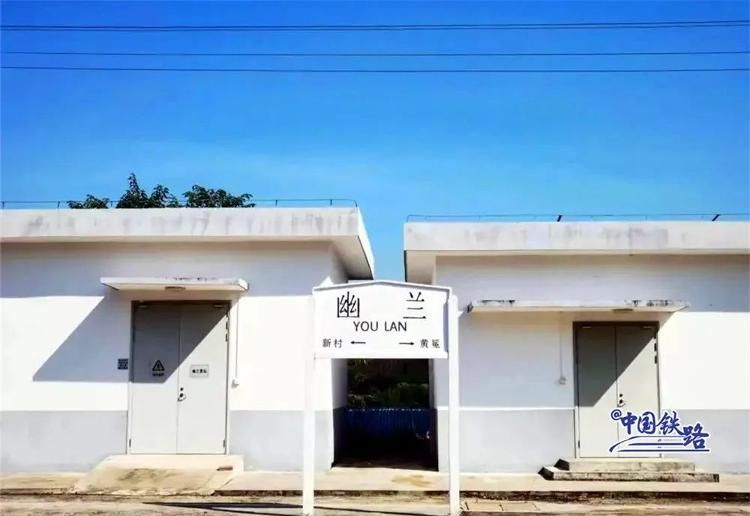
“It will stop when you are warm, and it will end The orchid extends and stands.”
Source: Warring States Period Qu Yuan’s “Songs of the Chu·Li Sao”
Translation: Time is dark, the day is coming to an end, I compiled the orchid and stood there for a long time.
“Youlan” is the poet’s metaphor for good morals, and it is also the “fang name” of a small station on the Hunan-Guangxi Line. Youlan Station is located in Luzhai County, Liuzhou City. It was built in 1939 and still exudes a “fragrance” on the Wanli Railway Line.
2 Haitang Station
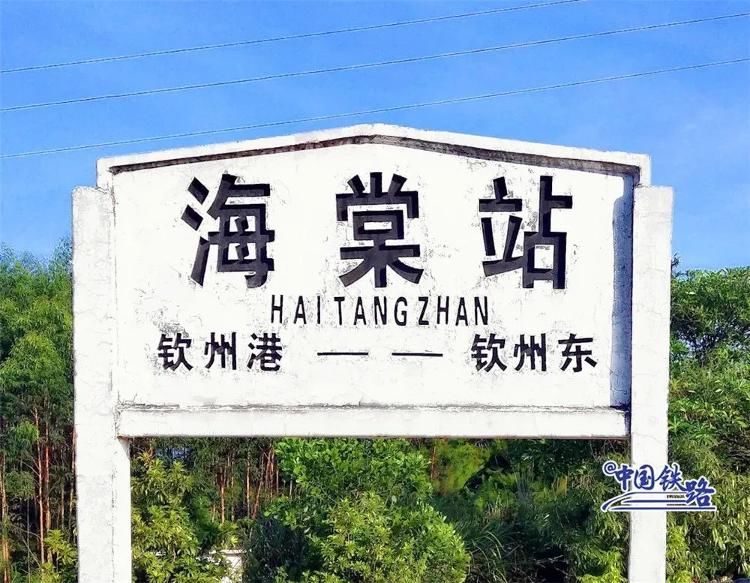
“I’m only afraid of sleeping late at night Go, so burn high candles to take photos with red makeup.”
Source: Su Shi’s “Begonia” in the Northern Song Dynasty
Translation: I was only worried that it was late at night and the flowers were asleep, so I lit candles to take pictures Bright beautiful flowers.
The most famous of begonias singing beauty is Tang Xuanzong’s comparison of drunk Yang Guifei to “begonias who haven’t slept enough”. Instead, Su Shi uses flowers to personify people and express his love for begonias’ delicate and beautiful appearance. There is a flower that blooms slowly in poetry, and there is also one on the railway. This is Haitang Station in Haitang Village, Shabu Town, Qinnan District, Qinzhou City.
3 Qingmao Station
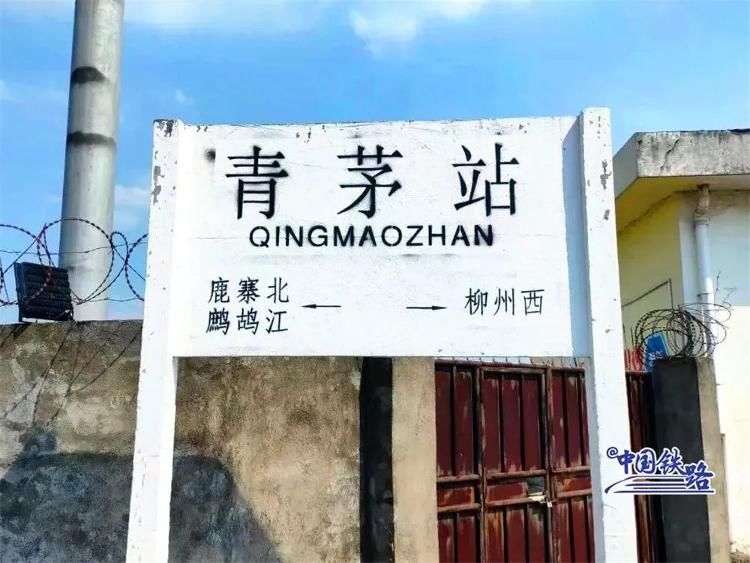
“Song Sun Zhu, Shrinking wine and Jiangmao.”
Source: Northern Zhou Yuxin’s “Zhou Si Fangzege·Zhaoxia”
Translation: play music with a musical instrument made by Sun Zhu, use Jingmao to filter wine to worship the gods.
In ancient times, it was necessary to filter wine with thatched leaves to remove the sediment, which was called “shrinking wine”. Citronella from the South played an irreplaceable role in those solemn and sacred moments of the past. Also in the south, Qingmao Station is one of the stations of the Hengliu Railway Line, located in Liubei District, Liuzhou City.
4 grapes
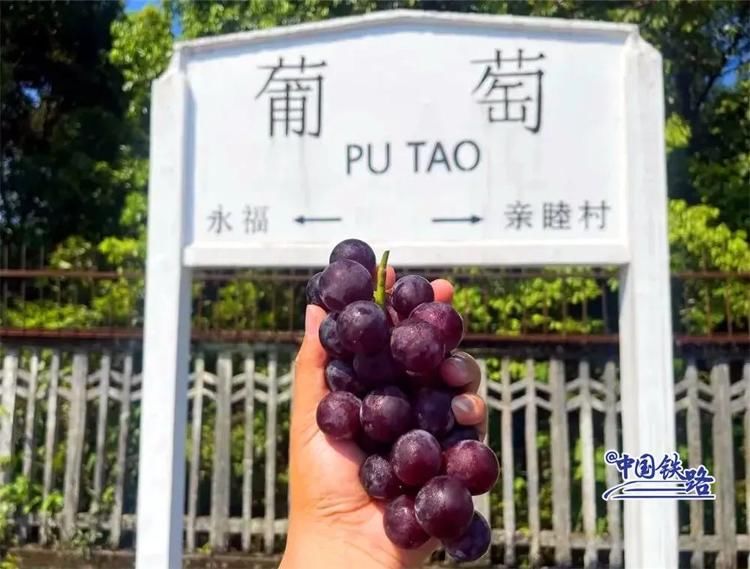
“Wine luminous cup, want to drink The pipa urges immediately.”
Source: Tang Wanghan’s “Liangzhou Ci”
Translation: The gleaming glass at night is full of wine, and when it is about to raise the glass, the musicians are immediately Playing the pipa to persuade the wine to add to the fun.
Grape was rooted in the land of China as early as the Warring States Period, and in Guangfu Township, Yongfu County, Guilin City, it became the name of a railway station. Built in 1939, Grape Station is 419 kilometers away from Hengyang Station and 594 kilometers away from Pingxiang Station.
5 Plate Peach
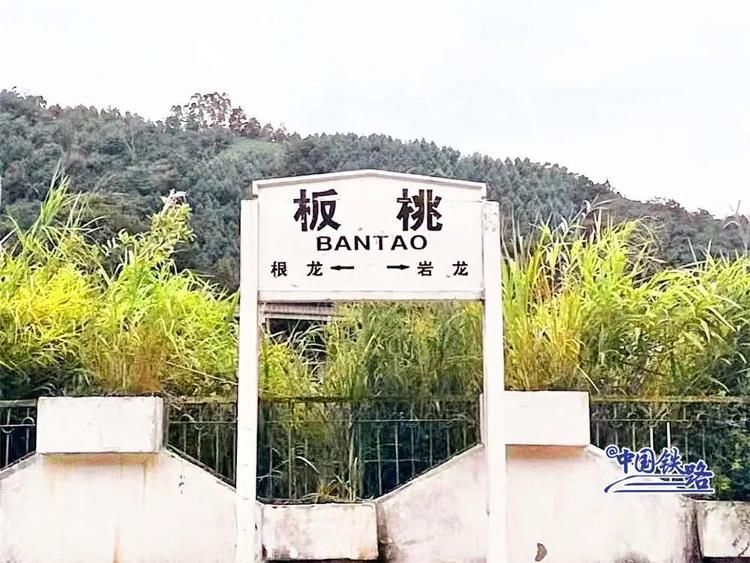
“Peach blossoms, shining Qihua. When the son returns home, it is suitable for his family.”
Source: Pre-Qin “Book of Songs, Zhou Nan, Taoyao”
Translation: Thousands of peach blossoms are in full bloom, and the colors are bright and red fire. This girl has been married before, and the husband and wife are happy and harmonious.
Bantao Station is located in Bantao Township, Tianlin County, Baise City. It is a small station on the Nanning-Kunming Railway. It was built in 1997. Yanlong Station. In the poem, the peach tree is used as a comparison, and peach blossoms, peach fruits and peach leaves are used to wish the newlyweds a happy and prosperous family. Around Bantao Station, people are still as blessed as they were thousands of years ago.
6 Luzhai
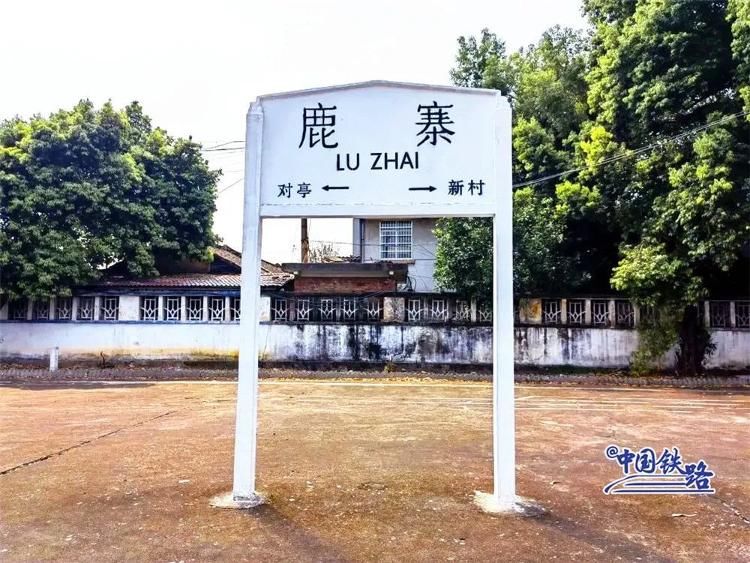
” Yo Yo Lu Ming, Shi Ye Zhi Ping. I have guests, and I will encourage and play the sheng.”
Source: Pre-Qin “Book of Songs, Xiaoya, Luming”
Translation: The wild deer chirped and ate. Wormwood in the suburbs. There are important guests beside me, playing the ser and blowing the sheng.
Luzhai Station was built in 1939 and is located in Luzhai Town, Luzhai County, Liuzhou City. In the poem, Luming, who invites friends and companions, evokes the sincere hospitality of the host to the guests, and the small station named after the deer also warmly receives trains from afar every day.
7 Partridge River
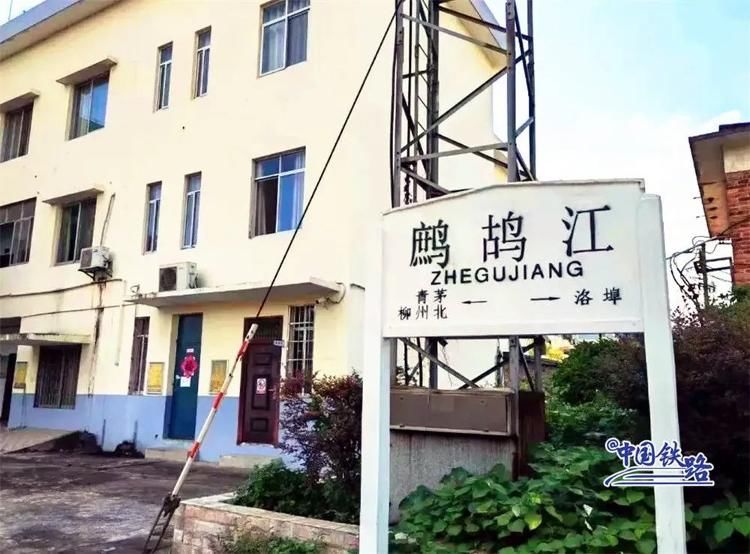
“The green hills cannot cover, After all, it flows to the east. Jiang Wan is worried, and the partridge is heard in the mountains.”
Source: Xin Qiji, Southern Song Dynasty, “Bodhisattva Man, Book Jiangxi”Stoma Wall”
Translation: The green hills can’t stop the river flowing eastward. The evening scene on the river is making me sad, and I hear the call of partridges in the deep mountains.
Partridge River Station is located in Partridge River Village, Changtang Town, Liubei District, Liuzhou City. It was built in 1939. The water and grass are abundant here, and partridges often live here, so it is named “Partridge River”. The ancients believed that the partridge’s cry was mournful, very similar to “I can’t do it, my brother”, so it was often used in poetry to express the homesickness of wandering people. When the train going from south to north, when passing through this place, you may also hear a bird song that evokes nostalgia in the evening.
8 Baihe Pass

“The green hills are faint and lonely, The white cranes will meet each other in a flash.”
Source: Tang Wang Changling’s “Send Wan Da to Changsha”
Translation: The green mountains are shadowy, and the lonely boat on the far river seems to have become very small , I suddenly saw a pair of white cranes flying, maybe one day my friends and I will be able to meet again like them.
Baihe’ai Station is located in Qianjiang Town, Xingbin District, Laibin City. It was built in 1972. The Laihe Railway where the station is located is the first railway built in Guangxi. Legend has it that the white crane is the friend of the ancients who cut off the dust and returned to seclusion to seek immortality, but this “white crane” is very different. It lives in the mountains but always cares about the distance. Small stations like Baihe Pass constitute China’s huge railway. Peripheral nerves in the net.
9 Fengming
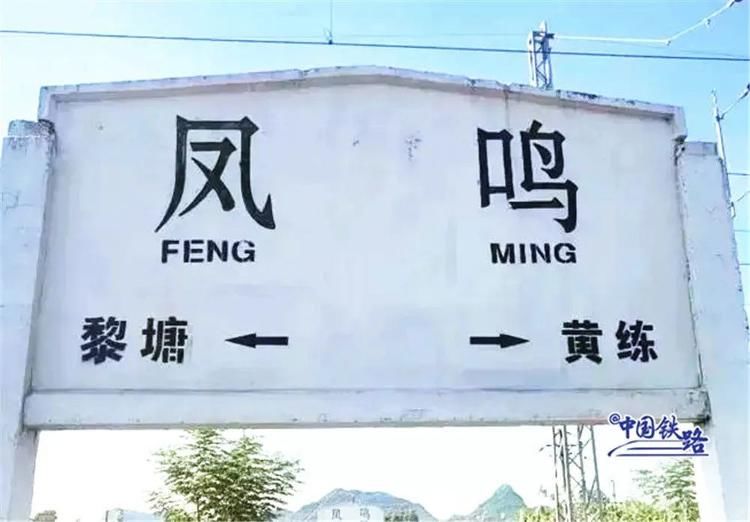
“The sky hangs its image, the ground Yao Qiwen. Feng Ming Chaoyang, Long Xiang Jingyun.”
Source: Western Jin Dynasty Yingzhen “Jin Wudi Hualin Garden Collection Poems”
Translation: the scene under heaven , to display its graph. The phoenix chirped in the face of the rising sun, and the flying dragon soared among the auspicious clouds.
Fengming Station is a small station on the Lizhan Railway. It is located in Fengming Village, Litang Town, Binyang County, Nanning City, just to the east of the town. Every morning, Chaoyang first climbs onto the roof of the station, which just corresponds to the meaning of “Fengming Chaoyang”. The small station now only handles the business of receiving and dispatching trains, receiving and dispatching nearly 60 pairs of trains every day. Perhaps in the hearts of the persevering workers, the sound of the train running smoothly on the track is the “Feng Ming” that brings peace and happiness.
10m field
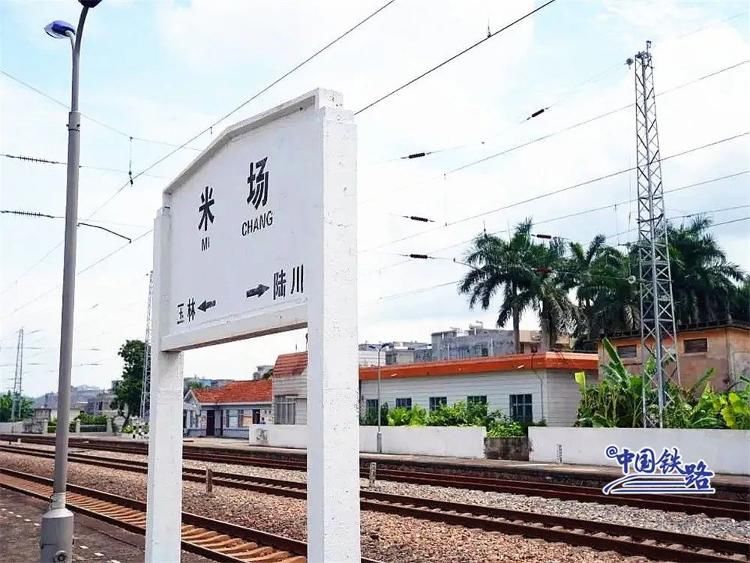
“Rice fat and corn white, Both public and private warehouses are rich and solid.”
Source: Tandoori Fu’s “Two Songs from the Past”, Part 2
Translation: Rice, oil, and corn are pure and white, both in government and private grain warehouses. enriched.
Michang is a small station on the Li-Zhanjiang Railway. It is located in Michang Town, Luchuan County, Yulin City. Now only the business of receiving and dispatching trains is handled here, and nearly 60 pairs of trains are received and dispatched every day. Iron dragons run on the land instead of pack horses, and run into the distance with people’s hopes.
11 Yongfu
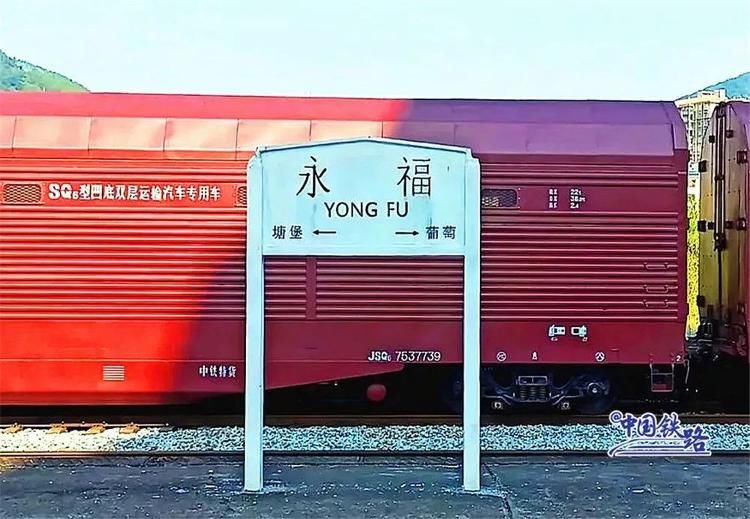
“Hongji Weiyong, Fuzuo Chimelong.”
Source: Sui “Sui Yuanqiu Song Huangxia”
Translation: The foundation will last forever, and the prosperity will last forever.
Yongfu Station was built in 1939 and is located in Yongfu Town, Yongfu County, Guilin City. It is now a small station on the Hunan-Guangxi Railway. The local people harvest happiness with their hard-working hands, and the railway shares the sweet-scented osmanthus oranges and mangosteens produced in the green mountains and green waters to friends at home and abroad.
12 Qinmu Village
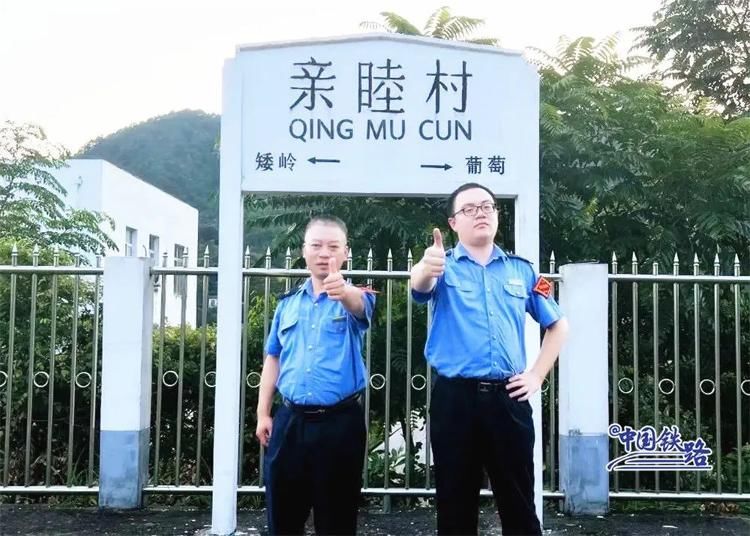
“Xiangtian Tongjing, When you come and go, you will be friends, watch and help each other, and support each other in illness, and the people will live in harmony.”
Source: Mencius, Mencius, Tengwen Gong Shang of the Warring States Period
Translation: Going out to work and returning home to rest Walk together, cooperate to guard against foreign enemies and help each other, and take care of each other when you are sick, so that people can love each other and live in harmony.
Qinmu Village Station is located in Mabei Village, Yongfu County, Guilin City. It was built in 1959. It is a small station on the Hunan-Guangxi Railway. It is 429 kilometers away from Hengyang Station and 584 kilometers away from Pingxiang Station. Although it is located in a remote location, the workers of the small station support each other with the common pursuit of the railway business and build their own “Peach Blossom Land”.
13 Yongle Town

“If you have food and drink, why not Drummer? Let’s be happy, and let’s use the eternal sun.”
Source: Pre-Qin “Book of Songs, Tang Feng, Shanyoushu”
Translation: You have good wine and delicious food, why not every day Enjoy it? Use it to feel happy, use it to prolong the years.
Yongle Town Station is located in Yongle Township, Youjiang District, Baise City. It was built in 1997 and is a small station on the Nanning-Kunming Railway. Although there are no passengers, this is the exclusive “resting place” for trains. Vehicles traveling from south to north take a breath at the small station, and then usher in a new journey.
These names are closely related to classical poetry
or the herbs and flowers
bright blooming
Or the feathered bird fluttering high and
the auspicious auspiciousness that blesses the living beings
for thousands of years
the beautiful hope in the hearts of Chinese children
Crossing the motherland on the mountain and river railway line
There are many more beautiful names
waiting for you to discover